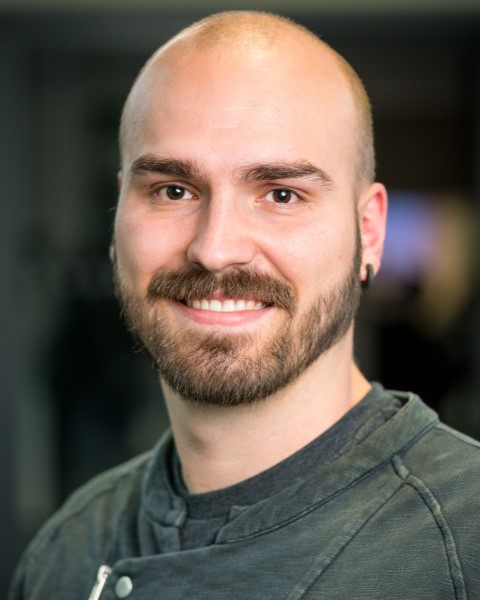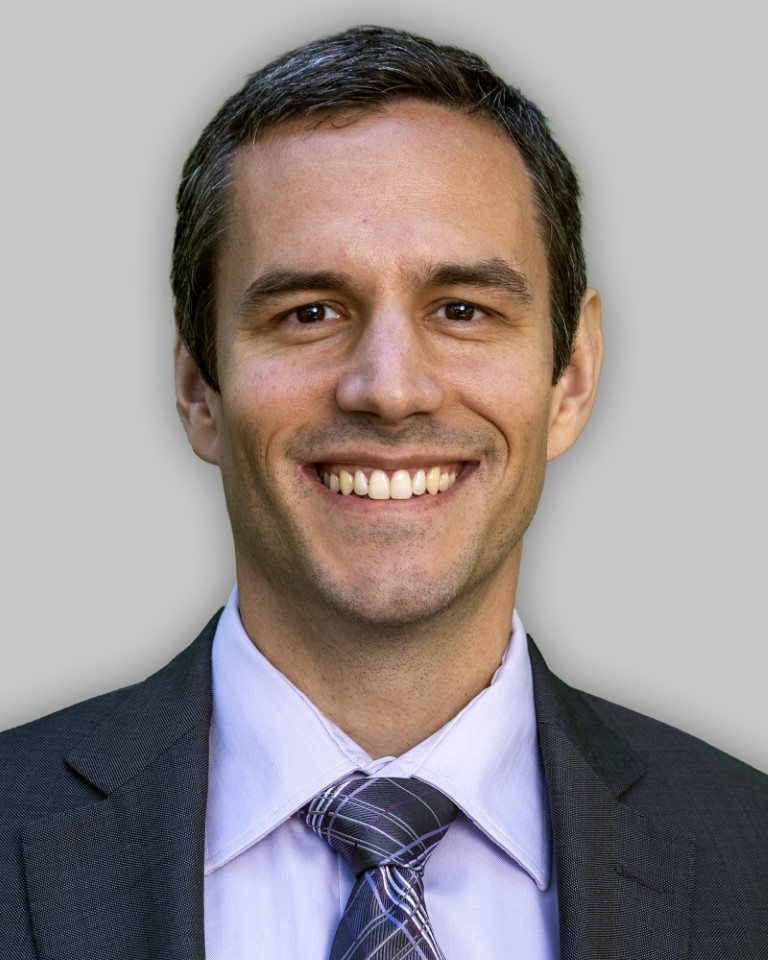Presenters
Folashade Agusto is an applied mathematician in Ecology and Evolutionary Biology Department at the University of Kansas. She designs novel models to gain insights and mitigate the risks posed to public health by emerging and re-emerging infectious diseases.Since 2017 she has engaged in a “mobile training clinic” in West Africa, visiting Benin, Ghana, Nigeria, and Senegal. The clinic involves training workshops for graduate students in ecology, epidemiology, and dynamical system analysis using seed funds from CIMPA through the African Mathematical Union. The mobile training clinic will be on the move to another African country in the summer of 2024 or 2025.
Florina Ciorba is an Associate Professor of High Performance Computing at the University of Basel. She was a senior scientist at TU Dresden (2010-2015) and a postdoc at Mississippi State University (2008-2010). She earned her Ph.D. in Computer Engineering from NTUA, Greece, in 2008. Florina and co-authors won best paper awards at Cluster 2019, IPDPSW ParLearning 2014, ICPDC 2014, and ISPDC 2011, 2023. She is a member of ACM (Life & Senior), IEEE, OpenMP ARB, SPEC HPG, and HiPEAC, and a founding member of IDEAS4HPC – a Swiss Chapter of WHPC. Her research focuses on scalable performance optimization, system and application observability and data analytics, and security in HPC.
Ewa Deelman received her PhD in Computer Science from the Rensselaer Polytechnic Institute in 1998. Following a postdoc at the UCLA Computer Science Department she joined the University of Southern California’s Information Sciences Institute (ISI) in 2000, where she is serving as a Research Director and is leading the Science Automation Technologies Center. She is also a Research Professor at the USC Computer Science Department and an AAAS, IEEE, and USC/ISI Fellow. Her research explores the interplay between automation and the management of scientific workflows. Deelman pioneered workflow planning for computations executing in distributed environments. Her group has led the design and development of the Pegasus Workflow Management software and conducts research in job scheduling, resource provisioning and data management in distributed systems.
Katherine J. Evans is the Division Director for the Computational Sciences and Engineering Division at Oak Ridge National Laboratory (ORNL). She is also an active researcher in the areas of Earth system model (ESM) evaluation, developing and implementing scalable numerical algorithms to improve the efficiency and accuracy for multi-scale configurations of ESM, and analysis of large-scale persistent weather patterns in global atmospheric models. As part of her numerical methods research with ESM, she also makes connections to other applications, including ice sheets, more general fluid flow, disease propagation, and oncology. Evans earned her PhD in Earth and Atmospheric Sciences with an emphasis in math from the Georgia Institute of Technology in 2000 and led the Computational Earth Sciences group at ORNL for 6 years before her current role. She is a member of the American Meteorological Society, American Geophysical Union, and the Society of Industrial and Applied Mathematicians.
Laura Grigori is a senior research scientist at INRIA in France, where she is leading Alpines group, a joint group between INRIA and J.L. Lions Laboratory, Sorbonne University, in Paris.
She was the chair of PRACE Scientific Steering Committee in 2021-2022, a member of this committee since 2016, a member of SIAM Council since January 2018, the recipient of an ERC Synergy Grant, and a SIAM Fellow.
Her field of expertise is in numerical linear, multilinear algebra, and high performance scientific computing. For her work on communication avoiding algorithms she was awarded with her co-authors the SIAM Siag on Supercomputing Best Paper Prize 2016 for the most outstanding paper published in 2012-2015 in a journal in the field of high performance computing.
She was the Program Director of the SIAM special interest group on supercomputing, January 2014 - December 2015, then the Chair of this interest group, January 2016 - December 2017.
Axel Huebl is a computational laser-plasma physicist working on Exascale simulations. As a scientist at Berkeley Lab, he leads the software architecture of the Beam, Plasma & Accelerator Simulation Toolkit (BLAST). He co-first-authored the paper winning the 2022 ACM Gordon Bell Prize, running the BLAST code WarpX on the first reported Exascale machine Frontier.In 2019, he completed his PhD with highest distinction at TU Dresden (Germany) and received awards for his pioneering work on PIConGPU (Gordon Bell Finalist @ SC13; ACM/IEEE George Michael Memorial Fellowship @ SC16; FoMICS PhD prize @ PASC17; IEEE-NPSS PAST award 2022). He is a vivid advocate for open science and founded the open particle-mesh data project (openPMD) for self-describing, scalable I/O and data science.
Karthik Kashinath is a principal engineer and scientist in HPC+AI at NVIDIA. He co-leads NVIDIA’s Earth-2 initiative, which utilizes cutting-edge large-scale AI to build Earth digital twins for weather and climate applications. A current focus of Earth-2 is on adapting generative AI technologies that are transforming the industry for scientific computing. Karthik is trained as a mechanical and aerospace engineer with a Bachelors from the Indian Institute of Technology – Madras, Masters from Stanford University and PhD from the University of Cambridge. Prior to joining NVIDIA, he worked at Lawrence Berkeley Lab in climate informatics, big data analytics, and physics-informed machine learning for fluid dynamics and Earth system science applications.
Nana Liu is an associate professor and PI of the Quantum Information and Technologies (QIT) group in the Institute of Natural Sciences at Shanghai Jiao Tong University and the University of Michigan-Shanghai Jiao Tong University Joint Institute. She received her PhD from the University of Oxford as a Clarendon Scholar in 2016. She is also the 2019 recipient of the MIT Technology Review’s 10 Innovators under 35 in the Asia-Pacific region. Her research focus is on employing quantum resources for quantum computation, with a current focus on quantum algorithms for ordinary and partial differential equations. Her research also lies at the interface between quantum computation, security and machine learning.
Siddhartha Mishra is a Professor for Computational and Applied Mathematics at ETH Zurich and a core faculty member of ETH AI Center. Mishra’s research interests are in numerical analysis, scientific computing, nonlinear PDEs, machine learning, high-performance computing and applications to physics and engineering. Mishra’s research has been recognized with many awards and honors including the ERC Starting Grant (2012), ERC Consolidator Grant (2017), GAMM Richard Von Mises Prize (2015), ECCOMASS Jacques Louis Lions Medal (2018), ICIAM Collatz Prize (2019) , INFOSYS prize in Mathematical Science (2019) and SIAM Germund Dahlquist Prize (2021). He has been an invited speaker at many leading international conferences including the International Congress of Mathematicians (ICM), Rio De Janiero, 2018.
Damian Rouson is a Senior Scientist and the Computer Languages and Systems Software (CLaSS) Group Lead at Berkeley Lab. He researches parallel programming models for high-performance computing and deep learning. CLaSS develops the Caffeine parallel runtime library, the Inference-Engine deep learning library, and the LLVM Flang Fortran compiler. He teaches tutorials on the UPC++ template library and has researched multiphase, quantum, and magnetohydrodynamic turbulence. He holds a B.S. from Howard University and a M.S. and a Ph.D. from Stanford University, all in mechanical engineering. He received a 2020 Better Scientific Software Fellowship and a 2023 Energy Secretary’s Achievement Award.
Ryan is a postdoc in the Advanced Modeling Program at Lawrence Berkeley National Laboratory. His research is in computational plasma physics, particularly in plasma-based particle acceleration. He contributes to the Beam, pLasma, Accelerator Simulation Toolkit (BLAST), including the exascale electromagnetic particle-in-cell code WarpX, and helps augment the current Berkeley Lab HPC plasma simulation codes with AI/ML. Ryan was awarded his PhD from the University of Michigan in Applied and Interdisciplinary Mathematics and Scientific Computing.
Fei Sha is currently a research scientist at Google Research, where he leads a team of scientists and engineers working on scientific machine learning with a specific application focus towards AI for Weather and Climate. He was a full professor and the Zohrab A. Kaprielian Fellow in Engineering at the Department of Computer Science, University of Southern California. His primary research interests are machine learning and its application to various AI problems: speech and language processing, computer vision, robotics and recently scientific computing, dynamical systems, weather forecast and climate modeling. Dr. Sha was selected as an Alfred P. Sloan Research Fellow in 2013, and also won an Army Research Office Young Investigator Award in 2012. He has a Ph.D in Computer and Information Science from University of Pennsylvania and B.Sc and M.Sc from Southeast University (Nanjing, China).
Michela Taufer, an ACM Distinguished Scientist, holds the Dongarra Professorship in High-Performance Computing at the University of Tennessee Knoxville. She completed her PhD in Computer Science from ETH Zurich. Taufer was a postdoctoral fellow at UC San Diego and The Scripps Research Institute, focusing on interdisciplinary projects in computational chemistry and computer systems. Her research spans high-performance computing, cloud computing, and volunteer computing, aiming to enhance AI for science. Taufer has held leadership roles at major HPC conferences and is the editor-in-chief of Future Generation Computer Systems. She is an advocate for diversity in academia and interdisciplinary research.
Ulrich Weidmann has been Full Professor of Transport Systems at ETH Zurich since June 2004, and from 2013 until the end of 2015 he was Head of the Department of Civil, Environmental and Geomatic Engineering (D-BAUG). Since January 2016, he has been a member of the Executive Board of ETH Zurich as Vice President for Infrastructure.After studying Civil Engineering at ETH Zurich, Ulrich Weidmann worked as a doctoral student at the Institute for Transport Planning and Systems (IVT). From 1994 until 2004, he was responsible for the services on the suburban (S-Bahn) and regional networks of Swiss Federal Railways (SBB). As Head of Engineering for the infrastructure division at SBB, he managed railway technology, architecture, diagnostic technology and innovation management. Ulrich Weidmann’s research has focused on the following areas: the design of passenger transport systems, the integration of rail freight transport systems in logistic chains, and the efficiency and automation of railway networks and track construction.As Vice President for Infrastructure, he leads the Executive Board division of the same name in the function of a Chief Operating Officer. Core competencies of the division are procurement, renewal and maintenance of needs-based infrastructures, as well as customer-oriented services for teaching, research, transfer, outreach and administration.
.svg)
.svg)
.svg)

.svg)
.svg)
.svg)



.png)

.jpg)


.png)






